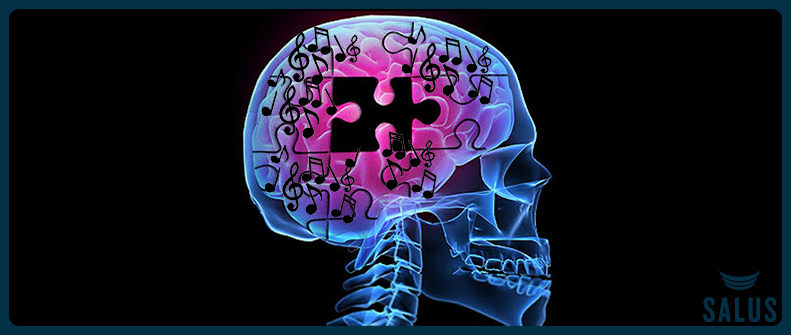
How to Help Individuals with Alzheimer’s and Dementia
In the earliest stages of Alzheimer’s and other forms of dementia, many family caregivers make the choice to keep their loved ones at home. This increases the responsibilities put on the shoulders of those caregivers, but it also provides their loved ones with all of the positive aspects that a home environment offers. During this time, an often asked question is how to prevent early stage Alzheimer’s from progressing. While there is not enough information about preventative measures with regard to this illness to date, some recent research has provided us with clues to the mystery behind slowing the deterioration of the brain.
The Power of Music
A recent article on CNN discussed the findings made by Swedish scientists studying the brains of twins with dementia. This study spoke of the benefits of mentally and intellectually stimulating lifestyle factors that have proved positive in preventing cognitive decline. Specifically, the benefits of listening to music, studying a musical instrument and continuing to play that instrument throughout the aging process were explored. The study focused on twins because, while twins are genetically similar, they often experience different lifestyle factors, and studying them helps scientists to understand the role that lifestyle choices can make in relation to cognitive and mental health.
The Benefits of An Active Brain
According to CNN, the most important take away from the Swedish study is that keeping the brain active has a positive impact by holding back symptoms of dementia. In fact, later stage Alzheimer’s may be delayed by up to five years when creative activities are a part of day to day life. Not only is this positive for the individual’s health, but it can improve opportunities for continued aging in place and help to decrease the costs associated with increased care needs.
The Benefits of In Home Care
When it comes to providing a frail senior with mentally and intellectually stimulating activities, Salus understands the immense benefits of enlisting the help of an in home care provider. By making this choice, primary caregivers not only provide themselves with respite time away from their responsibilities to the individual requiring assistance, but they also offer that individual the gift of additional emotional support, socialization and mental and intellectual stimulation. A Salus home health aide might sit with the individual during lunch and participate in friendly conversation, help the individual to complete a crossword puzzle, offer encouragement while the individual plays a long favorite melody on the piano or turn on the radio and encourage the individual to dance. As with all of our services, activities are always customized to meet the individual’s current level of physical and mental ability, as well as the goals of the individual and family members.
Preventing Isolation For The Caregiver
In addition to providing cognitive stimulation, enlisting the help of an in home health aide helps to prevent isolation for both the individual facing health concerns and the family member providing primary care. Social isolation is the number one concern facing individuals over the age of 50. According to the AARP, isolation is connected to many health problems including the deterioration of cognitive abilities, increased risks from exposure to infectious diseases, depression and high blood pressure. Individuals often become isolated when they are home bound due to a physical, mental or cognitive illness, or when they are providing care to a loved one and are unable to leave that person alone to interact with others in the community. In fact, recent studies conducted by the AARP prove that 70 percent of family care providers suffer from clinically significant symptoms of mental and cognitive health concerns, often related to isolation.
At Salus Homecare, we provide quality in home care professionals who support primary care providers, allowing them to comfortably leave their loved ones and continue to participate in activities throughout their communities. This helps to preserve the physical and mental health of family members, which is increasingly important if they are to maintain their roles as primary care providers. In addition, a Salus plan of care incorporates safe, fun and appropriate activities that home bound individuals can enjoy while their loved ones are away. This provides necessary mental stimulation for the home bound individual, and it can prevent that person from feeling isolated.
Scientists continue to study the human brain, but advancements are made every day. Among these advancements is the understanding that regular interaction with others, participation in engaging activities and a healthy lifestyle effectively slows the progression of dementia and reduces feelings of isolation for many individuals. If you would like assistance creating an engaging and cognitively stimulating plan of care that will benefit your loved one’s health and provide you with necessary respite time, give Salus Homecare in San Gabriel Valley a call today.
Resources:
1. Playing for Time: Can Music Stave Off Dementia?. Landau, Elizabeth. Retrieved August 5, 2013, from http://www.cnn.com/2013/08/31/health/music-dementia-link/index.html?hpt=hp_bn13.
2. Reconnecting Those In Isolation. Retrieved August 5, 2013, from http://www.aarp.org/aarp-foundation/our-work/isolation/.
There is no ads to display, Please add some

